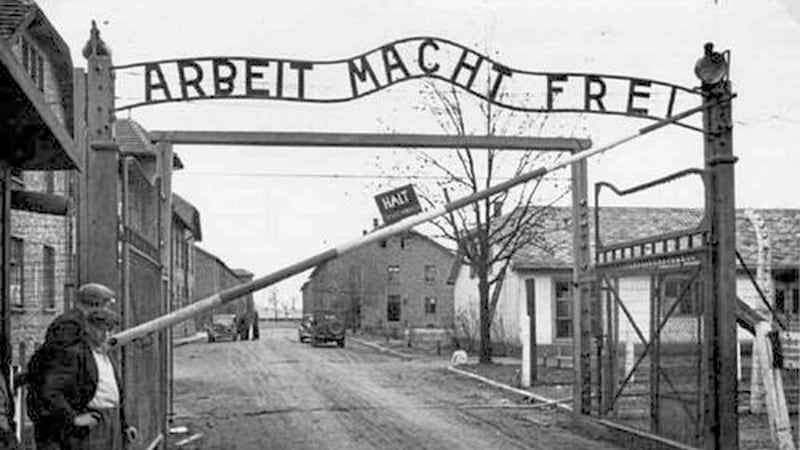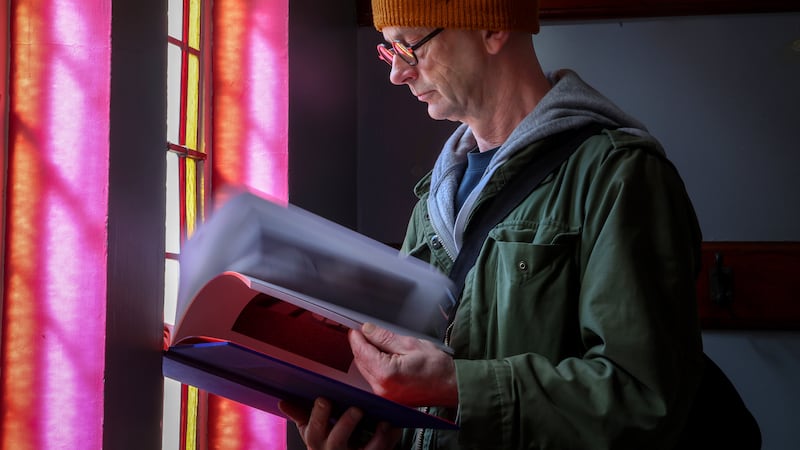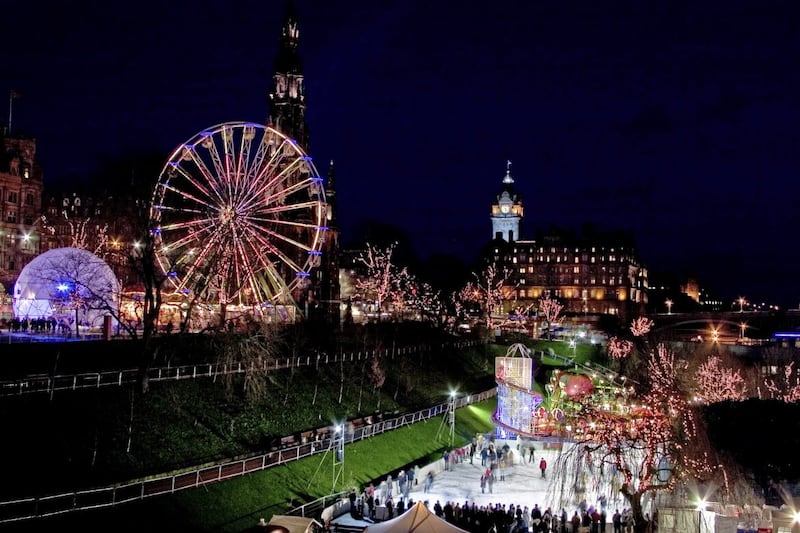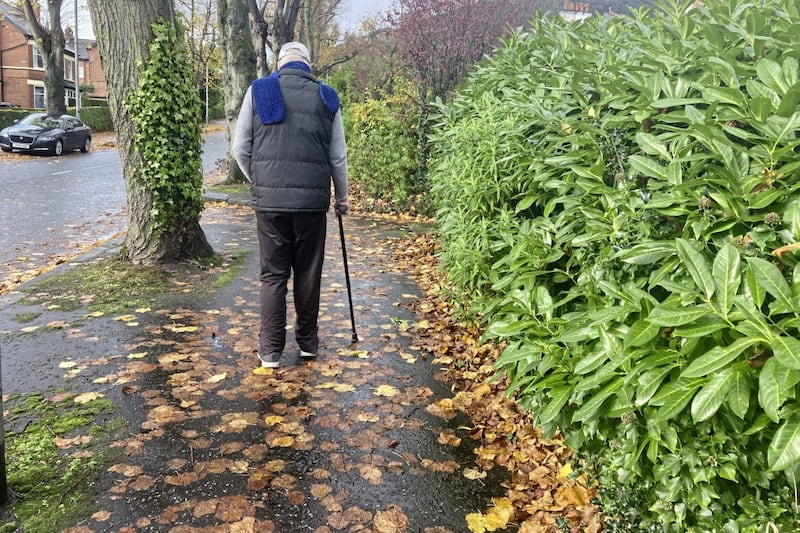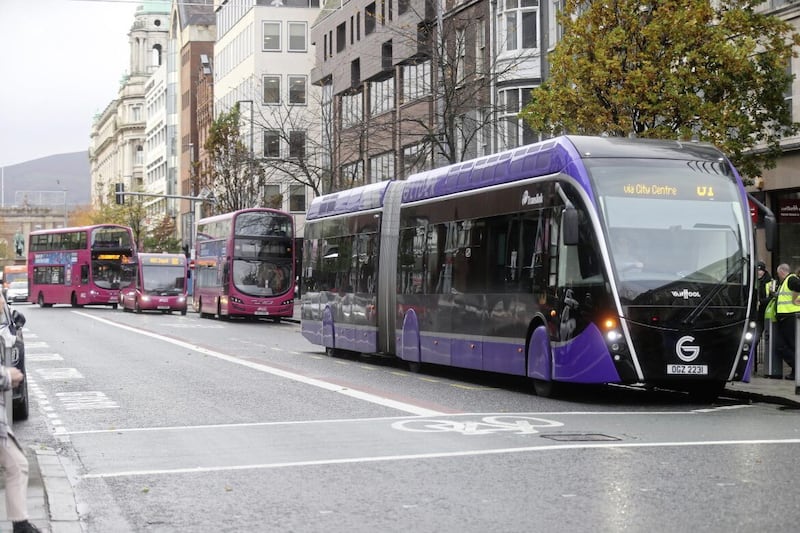EVERY year on January 27, people all over the world are invited to pause to honour the six million Jews murdered under Nazi persecution during the Holocaust and millions more in subsequent genocides in Cambodia, Rwanda, Bosnia and Darfur.
Today, on this the anniversary of the liberation of Auschwitz-Birkenau, in Belfast people will gather at the city hall to remember and I will be there as usual.
I was about 14, just home from school. It was May 11, my Mum’s birthday, and we were preparing a birthday tea. The front doorbell rang and I went into the hall and opened the door. On the step was a little boy of eight – he lived across the road and I knew him well.
He looked at me, sad and confused, and said: “My mummy is hanging in the garage.”
That woman had taken her own life and I wondered why. Why, with two delightful young sons, would she do such a thing? She had arrived from Poland and was living in a nice house with good neighbours. I couldn’t make sense of it.
What I didn’t know was that she had fled from her home in Poland with her children knowing that members of her entire family had been murdered just because they were Jewish. For the first time I heard the word Holocaust.
Obviously I have never forgotten that evening and the tragedy that unfolded across the road so, when some 12 years ago, I had the opportunity of going to Poland to visit Auschwitz-Birkenau, I didn’t hesitate.
Some of my friends were scandalised that my travelling companions and I were going by plane for a ‘day trip to Auschwitz'. They seemed to think we were going on a jolly, fly into Kraków, see the sights, take in the concentration camps on the way and fly home. It wasn’t like that at all.
But were we voyeurs or serious students of the Holocaust? I wrote at the time:
Wednesday 11.30pm
It’s been a long, harrowing day, as many mixed emotions as a person can tolerate. We’re a motley crew with only one bag each, essentials for the day, all asking, can it be as terrible as we’d read or seen on grainy black and white film? Surely there’s exaggeration and poetic licence just to make the point?
The answer is – absolutely not. What happened at this extermination camp is as terrible as is depicted and worse; this is no voyeuristic trip, this is an educational tour of a memorial site, thoughtfully presented, no indulgence, just the facts, which burned into the soul.
Late morning we arrive at the camp entrance with the words ‘ARBEIT MACHT FREI’, Work Shall Set You Free, in big metal letters over the gates, designed by the camp’s iron worker and mounted by prisoners.
In protest against the slogan they turned the letter B upside down.
Behind these gates, between 1940 and 45, nearly one million Polish Jews died as well as Romany people, Soviet prisoners of war and tens of thousands citizens of other countries.
For us, a lovely autumn day, the same trees have lost their leaves, one tiny bird puts in a brief appearance; apart from that only the subdued chatter of other groups from round the world.
First we visit the museum with our guide, a fine-arts graduate called Marzena. She is young and pretty, efficient and concise yet moved by her own commentary. We face the blown-up pictures of families with the gaunt faces, one young woman looks like my daughter-in-law holding my baby grandson; we see a model of the camp, little plaster figures represent the prisoners and give a scale to the tragedy.
I realise, suddenly, that’s the point – we all knew the words but now we were learning the tune. Here, for the first time, I have a point of reference, I can see the cramped cells with the hard wooden bunks, over 100 concrete latrines in a long line open to view and later, standing in the gas chamber, the sick feeling in the pit of the stomach.
As the threads of the story weave in and out of our day it occurs to me that in so many ways our ‘party’ could be aligned with those prisoners. A representative group of men and women arriving in anticipation, carrying one bag of essentials, as did the prisoners – their little suitcases are displayed behind glass along the walls of Block No 4.
Each has a name painted in faded white: Neumann Ella No. 589; M Frank Holland; Oppenheim Marta.
In another display thousands of combs, some with teeth missing, some well used and in need of a wash; toothbrushes, tins of toothpaste and cut-throat razors. Many of these Polish Jews were tailors and they brought sewing machines, the tools of their trade so they could, as they thought, set up in business when they were relocated.
Along the length of another wall are piled thousands of shoes, single boots, wooden clogs. A lone red dancing pump with a pompom – the child must have been going to a party when the knock came on the door.
One day in 1943
A father and son were brought to the camp. He was on crutches and his son dragged a deformed right foot. The old man’s crutches and the boy’s brace are in the pile of false legs, arms, a wooden foot at the end of a metal rod, callipers.
The two had come before the angel of death, 32-year-old SS Captain Dr Josef Mengele, for special medical experiments. They interested him because of their deformities. Eventually he shot them then boiled their bodies so the flesh could be retained. I can’t bring myself to describe more atrocities.
We learn that this doctor, once a professional saver of life, had become a crazed taker of life, delighting in torture and killing.
As someone asked, where was God when this was happening?

